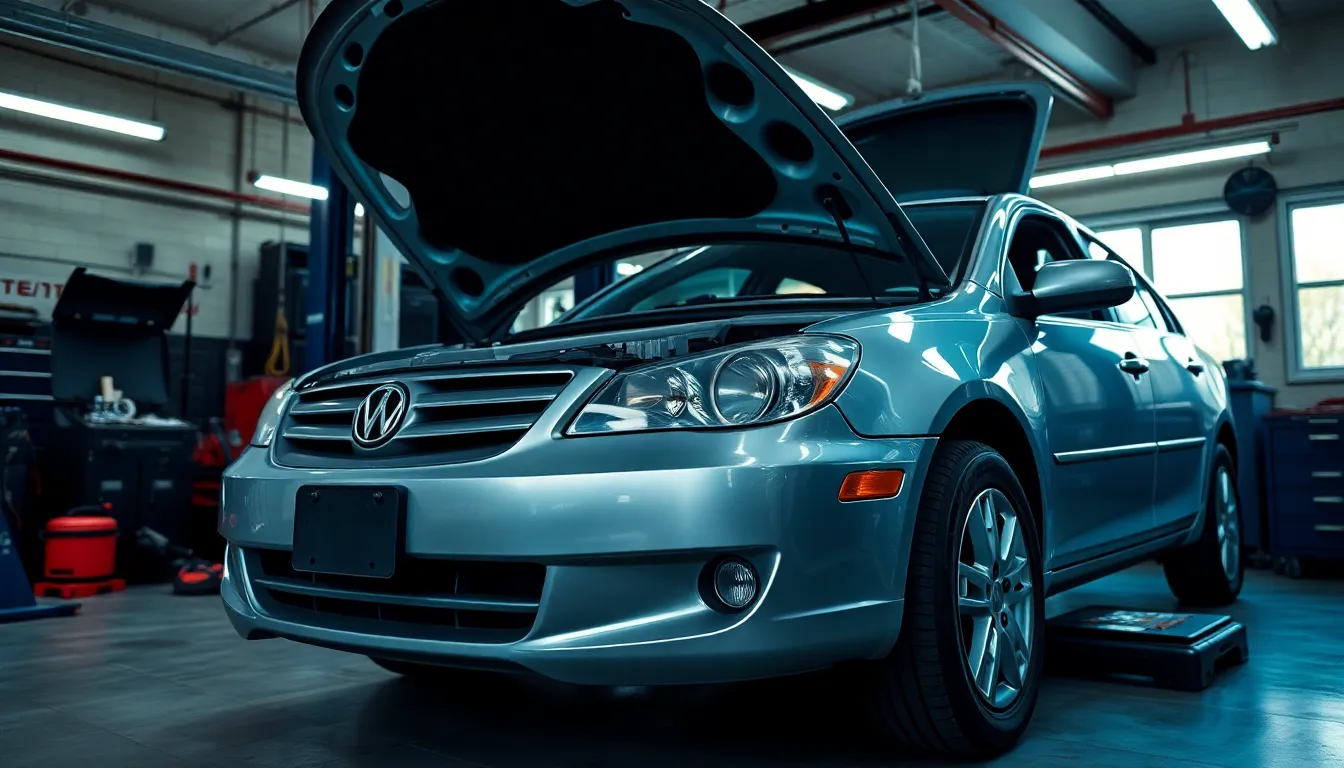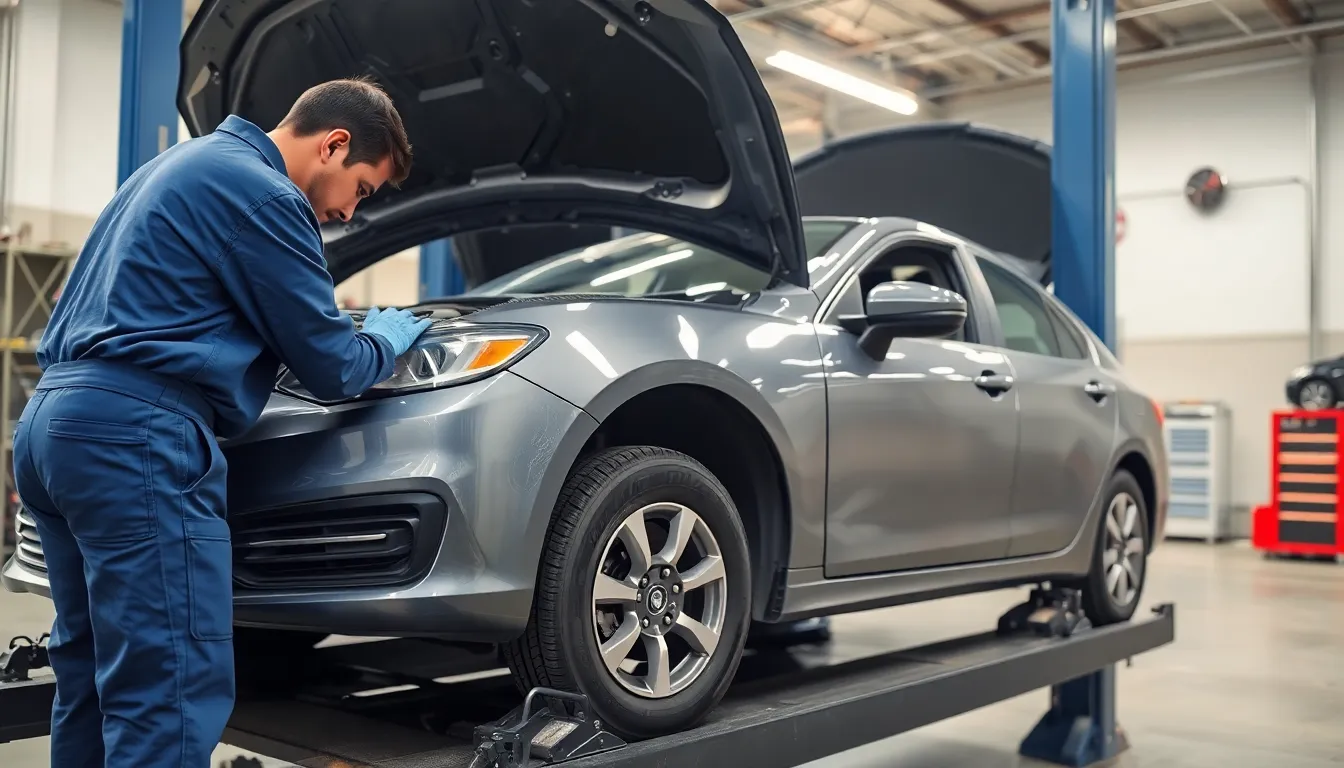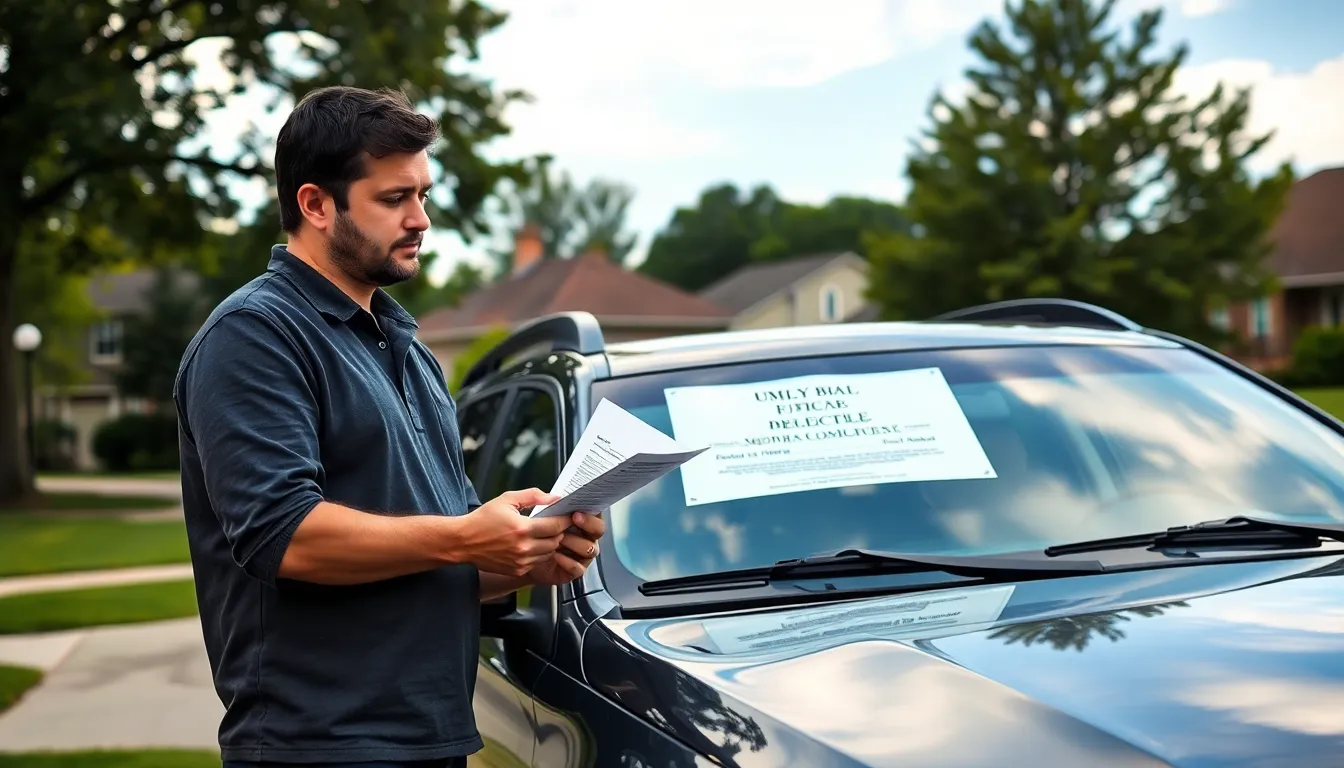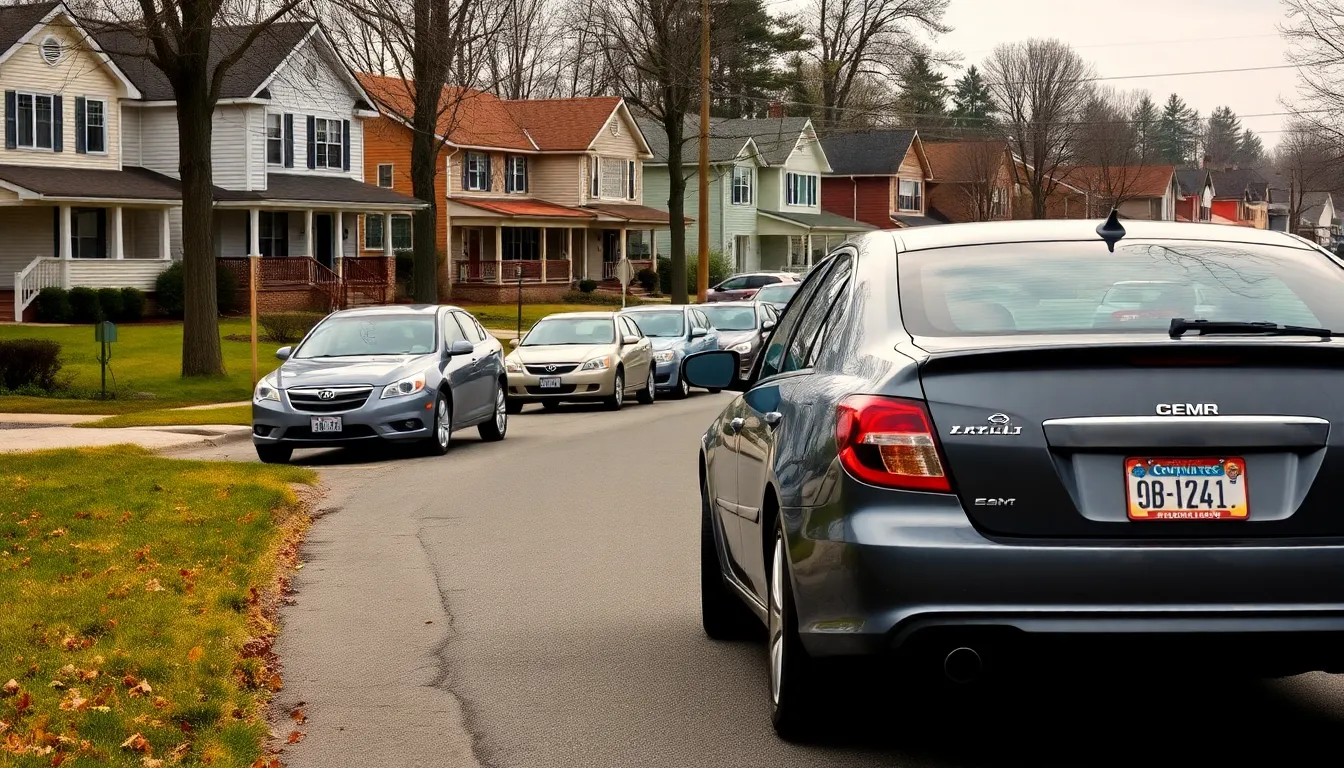Navigating Pennsylvania’s vehicle title system can be confusing, especially when dealing with previously damaged vehicles. If you’re wondering about “R titles” in PA, you’re likely referring to Reconstructed titles—an important classification in the state’s vehicle documentation system.
A Reconstructed title in Pennsylvania indicates that a vehicle previously had a salvage title but has successfully passed the Enhanced Vehicle Safety Inspection. This rigorous inspection ensures the vehicle has been properly rebuilt and meets all safety standards required by state law. The process involves thorough examination of critical components including brakes, tires, lights, emissions, and structural integrity before the vehicle can legally return to Pennsylvania roads.
Understanding the implications of an R title is crucial whether you’re buying, selling, or registering a previously salvaged vehicle in Pennsylvania. The title status affects everything from insurance options to resale value and registration requirements.
Understanding Rebuilt (R) Titles in Pennsylvania
A rebuilt title in Pennsylvania, commonly called an “R title,” represents a vehicle that was previously issued a salvage certificate but has been restored to roadworthy condition. In PA’s vehicle classification system, the “R” designation stands for “Reconstructed,” indicating the vehicle has undergone significant repairs following damage that once rendered it a total loss.
To obtain an R title in Pennsylvania, your vehicle must successfully pass the Enhanced Vehicle Safety Inspection at an authorized inspection station. This comprehensive examination verifies that all repairs meet Pennsylvania’s safety standards, ensuring the vehicle is safe to operate on public roads despite its salvage history.
R titles differ from standard titles by permanently carrying the “Reconstructed” designation. This marking alerts future buyers to the vehicle’s history and typically affects its market value. When purchasing a vehicle with an R title in PA, you’re buying a car that an insurance company once declared a total loss but has since been repaired and inspected.
The Pennsylvania Department of Transportation (PennDOT) requires specific documentation when applying for an R title, including:
- The original salvage certificate (no copies accepted)
- Form MV-426B with the vehicle identification number
- Receipts for repairs made and parts purchased
- A buyback letter from the insurance company if applicable
- Proof of ownership documentation
In Bucks County and throughout Pennsylvania, an R title serves as official certification that a previously totaled vehicle has undergone necessary repairs to be deemed fully restored and safe for operation. The reconstructed title is your legal requirement for driving such a vehicle on Pennsylvania roads.
What is a Rebuilt Title in PA?

A rebuilt title in Pennsylvania, also known as an “R title,” is an official designation for vehicles that were previously declared total losses but have been repaired and inspected to ensure they’re safe for operation. This title classification serves as certification that a formerly damaged vehicle has been properly reconstructed and meets Pennsylvania’s safety standards.
Difference Between Salvage and Rebuilt Titles
Salvage titles represent vehicles that have sustained significant damage from accidents, floods, fires, or other incidents where repair costs exceed a certain percentage of the vehicle’s market value. These vehicles can’t be legally driven on Pennsylvania roads. In contrast, an R title indicates the vehicle has progressed from salvage status by:
- Undergoing necessary repairs to restore roadworthiness
- Passing the Enhanced Vehicle Safety Inspection conducted by an authorized inspection station
- Receiving certification from an enhanced inspection mechanic
- Meeting all PennDOT requirements for reconstruction
The key distinction is that salvage vehicles aren’t operational on public roads, while rebuilt vehicles with R titles can be legally registered and driven in Pennsylvania.
How a Vehicle Qualifies for an R Title
To obtain an R title in PA, a vehicle must complete several specific steps in the reconstruction process:
- Start with an original salvage certificate or salvage title from PennDOT
- Complete all necessary repairs with documented receipts for parts and labor
- Schedule and pass the Enhanced Vehicle Safety Inspection, which examines:
- Brakes, tires, and suspension
- Lights and electrical systems
- Frame and body condition
- All standard annual state inspection points
After passing inspection, you’ll need to submit Form MV-426B (Application for Reconstructed, Specially Constructed, Collectible, Modified, Flood, Recovered Theft Vehicles and Street Rods) to PennDOT along with:
- The original salvage certificate
- A buyback letter from the insurance company (if applicable)
- Receipts documenting all repairs
- Proof of ownership documentation
- Vehicle identification number verification
Once approved, PennDOT issues the R title with a permanent “Reconstructed” brand, allowing you to register and legally operate the vehicle. This brand remains with the vehicle’s history permanently, indicating to future buyers that it was once a salvage vehicle that has been rebuilt to roadworthy condition.
The Process of Obtaining a Rebuilt Title in PA

Obtaining an R title (Reconstructed title) in Pennsylvania follows a structured process designed to ensure previously salvaged vehicles meet safety standards. The transformation from a salvage certificate to a rebuilt title requires specific documentation and passing a thorough inspection.
Required Documentation
To obtain an R title in Pennsylvania, you’ll need to gather several essential documents before applying. The original salvage certificate or salvage title must be provided—copies aren’t acceptable. If your vehicle was declared a total loss, include a buyback letter from the insurance company as part of your application package. You’ll also need receipts for all repairs made and parts purchased during the reconstruction process.
If you purchased the salvaged vehicle, additional documentation is required, including a bill of sale that clearly identifies the vehicle with its VIN and includes the purchase price, date, and signatures from both parties involved in the transaction. The original title for the vehicle must accompany your application as well. These documents verify your ownership and establish the vehicle’s history through the reconstruction process.
Enhanced Vehicle Inspection Requirements
The Enhanced Vehicle Safety Inspection is a critical step in obtaining an R title in PA. This comprehensive assessment is conducted by authorized inspection stations to verify the vehicle has been properly reconstructed and is safe for operation. The inspection examines all safety components including brakes, tires, suspension, lights, frame integrity, and body condition.
Any warning lights or messages on the dashboard must be repaired before inspection, including check engine lights, ABS warnings, traction control indicators, and tire pressure monitoring alerts. For field of view requirements, all window stickers and decals must be removed, and non-factory window tint is prohibited.
While cosmetic damage doesn’t necessarily prevent passing the inspection, the entire vehicle must meet enhanced requirements—not just the previously damaged areas. The vehicle must be in roadworthy condition before scheduling the inspection. If any issues are identified during inspection, you’ll need to address these problems and arrange for a re-inspection until the vehicle meets all safety standards.
Registering a Vehicle with a Rebuilt Title

Registering a vehicle with an R title (Reconstructed title) in Pennsylvania involves specific procedures beyond standard vehicle registration. Once your salvage vehicle passes the Enhanced Vehicle Safety Inspection and receives a Reconstructed title, you’re ready to proceed with registration through PennDOT.
Costs and Fees
Registering a vehicle with an R title in Pennsylvania involves several mandatory fees. The application fee for a Reconstructed title costs $53, while the Enhanced Vehicle Safety Inspection typically ranges from $100 to $200 depending on the inspection station. Registration fees vary based on your vehicle’s weight and type, generally between $38 and $84 for passenger vehicles. Additional costs include a title transfer fee of $55 if you’re purchasing a rebuilt vehicle from someone else. These fees must be paid at the time of application, with PennDOT accepting various payment methods including credit cards, checks, and money orders.
Insurance Considerations
Insurance for vehicles with R titles in Pennsylvania presents unique challenges. Many standard insurance companies charge higher premiums for reconstructed vehicles or offer limited coverage options. Some insurers may provide liability coverage but decline comprehensive or collision coverage due to the vehicle’s history. Before completing your registration, you’ll need proof of insurance that meets Pennsylvania’s minimum requirements of $15,000 for injury to one person, $30,000 for injury to multiple people, and $5,000 for property damage. Specialized insurance providers familiar with rebuilt vehicles often offer more competitive rates than mainstream companies. It’s essential to disclose your vehicle’s R title status when obtaining insurance quotes to ensure proper coverage and avoid potential claim denials.
Buying and Selling Rebuilt Title Vehicles in PA

Buying or selling a vehicle with an R title (Reconstructed title) in Pennsylvania involves specific considerations that differ from standard vehicle transactions. R-titled vehicles have unique disclosure requirements, valuation factors, and documentation needs that both buyers and sellers must understand.
Disclosure Requirements
When selling a vehicle with an R title in Pennsylvania, full disclosure of the vehicle’s history is mandatory. As a seller, you’re legally required to inform potential buyers that the vehicle previously had a salvage title and has been reconstructed. This transparency prevents potential legal complications and liability issues that could arise from withholding this critical information.
The title document itself clearly displays the “Reconstructed” designation, making the vehicle’s history evident to interested parties. During the transfer process, both buyer and seller must complete the appropriate PennDOT forms to document the ownership change accurately. Buyers should carefully examine all documentation, including repair receipts and inspection certificates, to verify the vehicle’s condition and repair history.
For out-of-state title transfers involving reconstructed vehicles, additional verification steps may be necessary. The seller’s signature on an out-of-state title may require notarization, and consulting with a dealer tag service or directly with the Bureau of Motor Vehicles is advisable to ensure compliance with Pennsylvania’s specific requirements.
Value and Pricing Factors
Vehicles with R titles in Pennsylvania typically have a market value 20-40% lower than comparable vehicles with clean titles. This significant difference reflects the inherent risks and history associated with previously salvaged vehicles. When determining the fair price for an R-titled vehicle, several key factors come into play:
- Repair quality – Professional repairs with documented parts and labor from reputable shops increase value
- Damage type – Prior structural damage generally impacts value more severely than cosmetic repairs
- Vehicle age and model – Newer, popular models tend to retain more value despite the R title
- Comprehensive documentation – Complete repair records, inspection certificates, and transparent history improve buyer confidence
Buyers should conduct thorough research on comparable vehicles and consider obtaining an independent inspection before purchasing. While R-titled vehicles offer significant cost savings upfront, they may incur higher long-term expenses through increased insurance premiums and potential maintenance issues.
When negotiating price, both parties should acknowledge the R title status as a significant factor. Sellers must be realistic about valuation, while buyers should ensure the discount adequately reflects the vehicle’s history and potential future complications. Professional appraisals can provide objective valuation benchmarks when significant disagreement exists about a fair price.
Benefits and Risks of Rebuilt Title Vehicles

Vehicles with an R title in Pennsylvania offer both significant advantages and potential drawbacks for buyers and sellers. Understanding these factors helps you make informed decisions when considering a reconstructed vehicle for purchase or sale.
Potential Savings
Reconstructed vehicles with R titles in PA typically cost 20-40% less than identical models with clean titles. This price reduction creates entry opportunities for budget-conscious buyers seeking specific models they couldn’t otherwise afford. Many R-titled vehicles function perfectly well despite their history, particularly when repairs were conducted professionally and thoroughly documented. The inspection requirements in Pennsylvania help ensure reconstructed vehicles meet minimum safety standards, providing some reassurance about roadworthiness. For mechanically skilled individuals, R-titled vehicles present opportunities to acquire and further improve vehicles at a substantial discount.
Long-term Considerations
R-titled vehicles in Pennsylvania face persistent resale challenges, as many buyers avoid reconstructed vehicles regardless of condition. Insurance companies often charge higher premiums for R-titled vehicles, and some providers limit coverage options to liability-only policies. Certain financing institutions refuse loans for vehicles with rebuilt titles, requiring buyers to secure alternative funding sources or pay cash. The R designation remains on the Pennsylvania title permanently, meaning the vehicle never regains a “clean” title status regardless of repair quality. Unexpected mechanical issues may emerge later, as state inspections focus primarily on safety rather than comprehensive mechanical assessment. When traveling across state lines, be aware that other states may have different policies regarding vehicles with Pennsylvania R titles, potentially complicating interstate transfers or sales.
Conclusion
Navigating Pennsylvania’s R title system requires understanding the specific requirements and implications for previously salvaged vehicles. These reconstructed titles offer a pathway for salvaged vehicles to legally return to the road while clearly indicating their history to all parties involved.
When dealing with R-titled vehicles you’ll face a balance of benefits and challenges. The lower purchase price makes them attractive but you must weigh this against potential insurance complications higher maintenance costs and future resale limitations.
Whether you’re buying selling or rebuilding remember that transparency is essential throughout the process. By following PennDOT’s guidelines and conducting thorough research you can make informed decisions about reconstructed vehicles in Pennsylvania.
Frequently Asked Questions
What is a Pennsylvania R title?
An R title, or Reconstructed title, is issued to vehicles that previously had a salvage title but have been repaired and passed Pennsylvania’s Enhanced Vehicle Safety Inspection. This title designation indicates that a once-totaled vehicle has been restored to roadworthy condition and meets state safety standards, allowing it to be legally driven on Pennsylvania roads.
How do I get an R title in Pennsylvania?
To obtain an R title in Pennsylvania, you must: 1) Start with an original salvage certificate, 2) Complete all necessary repairs, 3) Pass the Enhanced Vehicle Safety Inspection, 4) Submit required documentation to PennDOT (including the salvage certificate, repair receipts, and proof of ownership), and 5) Pay the $53 application fee. The process certifies that your vehicle is now safe for operation.
What’s the difference between a salvage title and an R title?
A salvage title indicates a vehicle that’s been declared a total loss and cannot be legally driven. An R title (Reconstructed) means the vehicle has been repaired and passed a rigorous safety inspection, making it legal to drive in Pennsylvania. While salvage vehicles are essentially “projects,” R-titled vehicles have been officially certified as roadworthy after repairs.
What does the Enhanced Vehicle Safety Inspection involve?
The Enhanced Vehicle Safety Inspection is a comprehensive examination of the vehicle’s safety components to ensure roadworthiness. It checks structural integrity, braking systems, steering, suspension, lights, glass, and other safety features. All warning lights must be addressed, and the vehicle must comply with safety standards. If issues are found, they must be resolved before re-inspection.
How much does it cost to get an R title in Pennsylvania?
The costs for obtaining an R title in Pennsylvania include: a $53 application fee to PennDOT, inspection fees ranging from $100-$200 depending on the facility, and registration fees between $38-$84 based on vehicle type. Additional costs may include repairs necessary to pass inspection and any documentation fees. Budget accordingly for this multi-step process.
Will insurance companies cover a vehicle with an R title?
Yes, but with limitations. Many standard insurers will cover R-titled vehicles but typically charge higher premiums or offer limited coverage options. Some may only provide liability coverage rather than comprehensive or collision. It’s crucial to disclose the R title status when obtaining insurance to ensure proper coverage and avoid potential claim denials later.
How does an R title affect a vehicle’s value?
Vehicles with R titles typically have 20-40% lower market value than comparable vehicles with clean titles. This reduction reflects the vehicle’s history and potential risks. Factors affecting valuation include repair quality, type of prior damage, vehicle age and model, and documentation completeness. Professional appraisals can help determine fair market value for these vehicles.
Are there benefits to buying a vehicle with an R title?
The primary benefit is cost savings—R-titled vehicles typically sell for 20-40% less than their clean-title counterparts. This can make otherwise unaffordable vehicles accessible to budget-conscious buyers. However, these savings come with trade-offs including potential resale difficulties, higher insurance costs, and the permanent R designation on the title.
What should I check before buying a vehicle with an R title?
Before purchasing: 1) Review all repair documentation and receipts, 2) Verify the Enhanced Vehicle Safety Inspection certificate, 3) Consider an independent mechanical inspection, 4) Research the vehicle’s damage history, 5) Check insurance options and rates beforehand, and 6) Understand how the R title will affect future resale. Due diligence is essential with reconstructed vehicles.
Can I sell a vehicle with an R title outside of Pennsylvania?
Yes, but with potential complications. Other states have different policies regarding reconstructed vehicles, which may affect title transfer or registration in those states. Some states may require additional inspections or documentation, while others might reclassify the title according to their own standards. Research the specific requirements of the destination state before attempting an interstate sale.
